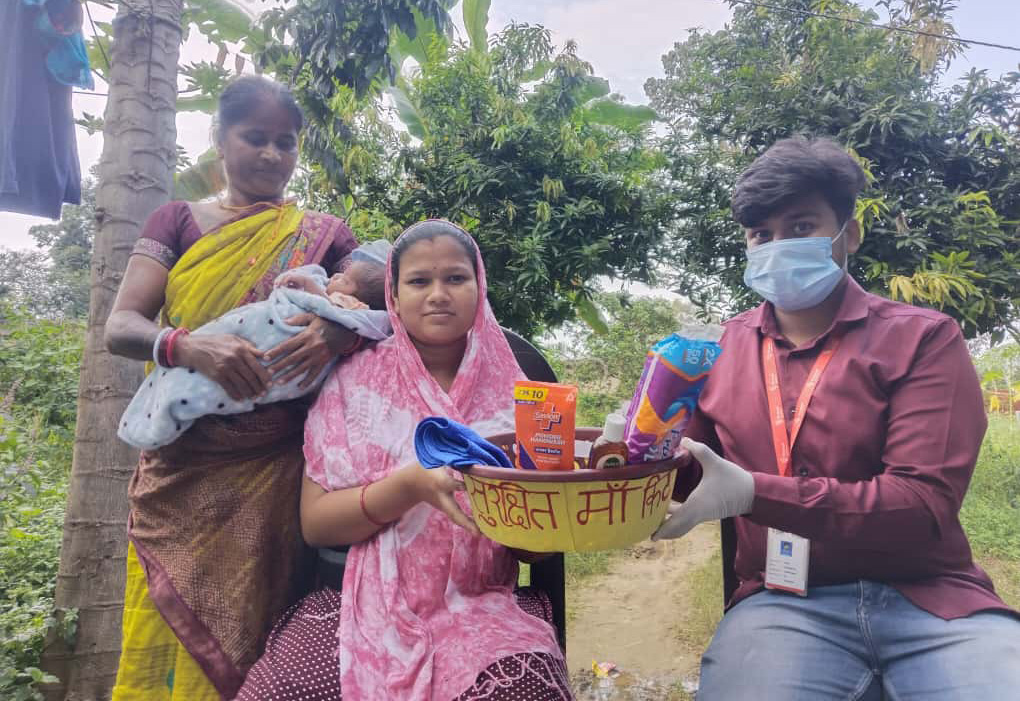
In many forest villages, births happen quietly at home. Families rely on long-held customs and the local Dai, an elder who has delivered babies for years. This way of doing things is rooted in care, trust and belief but it can also leave mothers without medical help when complications start.
Lotapani, a Pahadi Korwa village in Jashpur, lived this reality. Births took place on mud floors by lantern light. There were no clean blankets, no medicines, and no ambulance waiting. Some women lost their lives; others lost their infants. People accepted these tragedies for years as part of life.
Listening before acting
One night during the community immersion, Prasanjit Pani watched a young woman die during labour while her family kept chanting prayers. He felt helpless and couldn’t believe what his eyes were seeing. That scene stayed with him. To understand why the village was resistant to hospital care, he began by listening, sitting in courtyards and by fires, hearing women say, “Doctors do not treat us well,” “We do not speak their language,” “The Dai is ours.”
With patience, and working with local health workers and the community health officer, Prasanjit helped organise simple awareness sessions for men and women. The team visited homes again and again, answering questions, explaining that female staff or a Dai would attend hospital births and that privacy would be respected. This steady, repeated effort began to help break the fear and change their beliefs.
Taking charge of their health
After many visits, women started to act for their own safety. Thirty women attended a focused discussion on maternal health. There they spoke about fears and learned which worries were misconceptions and which were real risks. They learnt about the dangers of home deliveries, the benefits of giving birth at a facility, and the financial help they could get.
Soon, those thirty women walked together in a local safe motherhood rally, holding pamphlets that read, “Go to the hospital, bring home a healthy baby.” Practical steps followed: the ambulance number 102 was painted on thirty houses so families could call quickly when labour began.
Practical care that mattered
During one of the many discussions, women started to highlight more concerning issues, such as, “We have no clean cloth or soap when birth starts.” Using his fellowship stipend, Prasanjit put together Surakshit Maa Kits with soaps, towels, sanitary pads, antiseptic, and handwash. Thirty kits went to pregnant women and twenty to community volunteers (mitanins). The kits became symbols of dignity.
When labour began, families who once feared hospitals called for help. Prasanjit rang 102 and accompanied Yashoda Bai and Sita Muni Bai to the local health centre. Yashoda needed urgent care and was transferred to the nearby community hospital; both mothers delivered safely. Sita’s husband, who had resisted hospitals, said, “I was wrong, the care and medical helped I received in the hospital saved us.”
A New Beginning for Lotapani
After his initial effort, Prasanjit discussed the idea of providing baby-care kits with the Community Health Officer and local health officials. He proposed making it a routine part of institutional deliveries so that every mother receives essential items and counselling after childbirth. The officials agreed to review the suggestion and explore ways to include it in their regular health plan.
These discussions opened a new space for collaboration between the community and the health system. The Dais, once the only support during childbirth, are now being engaged to encourage women to opt for safe deliveries at health facilities. The change is gradual but visible—families are beginning to trust hospital care while continuing to value the Dais’ role in ensuring comfort and familiarity.
Lotapani is slowly moving from fear and hesitation to confidence and shared responsibility in maternal care.
TAGS
SHARE





